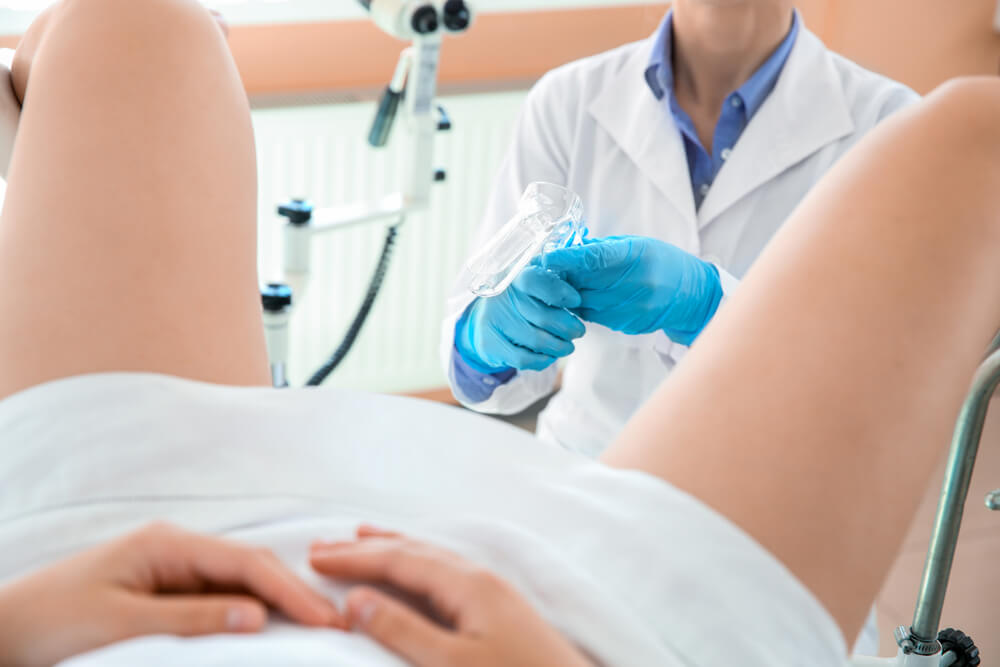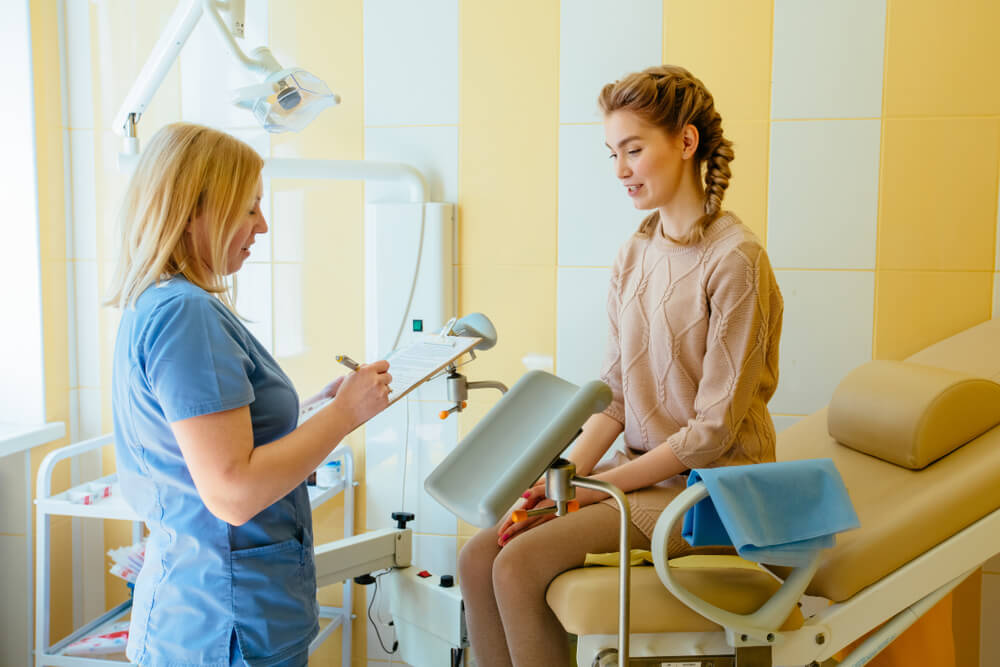Your first gynecologist appointment should not be intimidating. You should be comfortable and understand what to expect at your first gyno appointment. Your head may be spinning with questions like, “What does a gynecologist do,” “What questions do gynecologists ask on your first visit,” and “How should I be preparing for a gynecologist visit?” Going to the gynecologist for the first time can cause many different stresses, but your first ob-gyn appointment should be something to look forward to.
If you’re a young woman, you will eventually need to schedule your first gynecologist appointment at some point. Feminine health is just as important as any other body area, and even though your first ob-gyn appointment may seem like one big question mark, there is no reason to be nervous. When preparing for a gynecologist visit, you don’t need to do anything except discuss if something brought you into the office. The ob-gyn will make sure you get the yearly tests and screenings you need.
What Does a Gynecologist Do
A gynecologist is a doctor who specializes in female sex and reproductive health. Are you wondering, “What does a gynecologist do?” Your gynecologist can administer cancer screenings, STD tests, treat vaginal infections, and discuss or diagnose birth control. The feminine care doctor can also treat and diagnose various reproductive health conditions. At your first gynecologist appointment, the doctor may perform a pelvic exam and pap smear.
Going to the gynecologist for the first time is a monumental step towards achieving the best overall female health. If you’re an adult woman, you should schedule an annual visit. You may go in more frequently if you need any treatments or are trying out birth control. You should feel confident about your sexual and reproductive health, and your first ob-gyn appointment will do exactly that.

What To Expect At First Gyno Appointment
An overview of your medical history and beginning a discussion about your female health is likely what to expect at your first gyno appointment. It is recommended that women schedule their first gynecologist appointment as soon as they have their first period. This way, young women can get ahead of managing their cycle and learning about the health of the female body. From then on, annual appointments can maintain your feminine health concerns.
What Questions Do Gynecologists Ask On Your First Visit
You may be wondering, “What questions do gynecologists ask on your first visit?” and preparing for a gynecologist visit can include coming up with answers to possible questions. Keeping notes of period symptoms during your cycle can be an effective way to address your symptoms. Here are some questions you may be asked:
- When was the date and length of your last period? As a woman, almost every time you visit any doctor, you will be asked this question. It can shed light on your overall health as our period can be interconnected to the rest of our health.
- Are you sexually active? Your ob-gyn will likely ask you this question. If you attend the appointment with a parent or guardian, you may feel more comfortable if they left the room while you discuss your sexual health. There is nothing to be embarrassed about, and your doctor is not there to gossip about you. Your gynecologist should empower you on whatever sexual actions you do or don’t partake in.
- What brought you in today? Knowing why you made the appointment in the first place will help guide your appointment. Maybe you are suffering from a painful period. Perhaps, you want to become pregnant or think you are pregnant. It is important to voice any concerns you have about your female health; that way, your doctor will address them for you.
- If you are sexually active, your gynecologist may ask how many sexual partners you have and if you use protection. Your doctor may ask or recommend if you want to be tested for any STIs. The ob-gyn may bring up if you are interested in birth control, but you can ask them about what options would be right for you if they do not.
- What is your period like? This can give your ob-gyn insight on if you may have any reproductive health problems. Often, period symptoms are a big concern for patients. Birth control or other treatments are available to regulate and manage cramps, heavy bleeding, and irregularity. Did you know that you do not have to be sexually active to use some birth control options, like the pill? Birth control is very effective at regulating and managing period pain and symptoms.
- How are you feeling today? Mental health awareness has become increasingly important in all aspects of health. Your ob-gyn may ask about your day-to-day mood and if anything has been bothering you.
- What kind of medications are you taking, and what is your medical history? Your ob-gyn may ask about any surgeries you have had or conditions you may suffer from. Your medical background can help your doctor personalize your care. It is also important to be aware of any medications you are taking in case of interactions.
- Do you drink or smoke? Your gynecologist is not there to tell on you or get you in trouble. Even if you are under the legal drinking age or the legal smoking age, you should honestly share if you drink or smoke.
Going to the gynecologist for the first time may likely be mostly a conversation between you and your doctor. If you are under 21, you do not need a pap smear. Also, you may not need a pelvic exam either. Although depending on your symptoms, your ob-gyn may recommend one of these. Also, you may have to have a pelvic exam if you are interested in starting birth control besides the pill, like an IUD.

What Is A Pelvic Exam?
During a pelvic exam, your ob-gyn will first leave the room and ask you to undress from the waist down. There may be a gown you can put on. Once you are undressed and gowned up, you can position yourself in a seated position on the exam chair.
Your gynecologist will then knock on the door and ask if you are ready. Then your doctor will ask you to place your feet in stirrups so they can better examine your pelvic area. The pelvic exam consists of three parts, and an examination of your outer vagina and vulva is the first step. Then, your doctor will perform a cervical exam using a speculum. Finally, your doctor will check the health of your uterus and ovaries. They will insert two lubricated fingers to do this.
If you want to schedule your first gynecologist appointment, give us a call. Our mission is to empower women to address their feminine health concerns and provide all women with the best care available.


